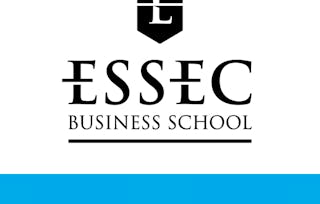This course will help you be a better negotiator. Unlike many negotiation courses, we develop a framework for analyzing and shaping negotiations. This framework will allow you to make principled arguments that persuade others. It will allow you to see beneath the surface of apparent conflicts to uncover the underlying interests. You will leave the course better able to predict, interpret, and shape the behavior of those you face in competitive situations.

Introduction to Negotiation: A Strategic Playbook for Becoming a Principled and Persuasive Negotiator

Introduction to Negotiation: A Strategic Playbook for Becoming a Principled and Persuasive Negotiator

Instructor: Barry Nalebuff
Top Instructor
688,986 already enrolled
Included with
5,197 reviews
Skills you'll gain
- Relationship Building
- Negotiation
- Contract Negotiation
- Game Theory
- Persuasive Communication
- Leadership
- Collaboration
- Influencing
- Strategic Decision-Making
- Communication
- Conflict Management
- Mediation
- Skills section collapsed. Showing 11 of 12 skills.
Details to know

Add to your LinkedIn profile
11 assignments
See how employees at top companies are mastering in-demand skills

There are 9 modules in this course
I've promised that this course will help you be a better, smarter, more strategic negotiator. To do that, we begin by laying a foundation for negotiation, a theory of the “pie.” Over the years, I’ve discovered even the most experienced negotiators tend to lack a framework that grounds their approach to negotiation. While some folks try to bully their way to a larger share, most people make arguments that sound fair to them. But what sounds fair to them often doesn’t sound fair to the other side. Their criteria for what's fair may be biased in their favor. The theory of the pie is useful because it doesn’t depend on which side you are taking. It provides principles that will change the way you approach negotiations—in this course and in life. It will allow you to make arguments that persuade others. That’s why I am teaching you about it first.
What's included
7 videos10 readings2 assignments
You've got the theory. Now let's use it. I'll show how the pie framework applies to some mini cases, or caselets. The Merger Case considers how the synergy gains from a merger will be shared by the two parties. While this is still a stylized case, you'll see how it directly applies to some very real merger negotiations. "Start By Asking" shares a salary negotiation done by one of my students and provides a chance to introduce the idea of one's reservation value, or BATNA. You'll also learn why it's best to never say no. We end the week with our first interactive exercise—the Ultimatum Game. Here you have an opportunity to negotiate with your fellow classmates and with me. You also have the first mastery quiz for the course. I've tried to make it as much a learning opportunity as it is a test of your ability to apply the concepts presented.
What's included
6 videos7 readings2 assignments1 app item1 discussion prompt
The Zincit case provides an opportunity to discuss a wide-ranging set of topics including how to prepare for a negotiation, making ultimatums, alternating removals, avoiding regret, expanding the pie, and dealing with someone who has a very different perspective on the world.
What's included
21 videos6 readings2 assignments1 peer review1 app item
Our second case study is more difficult. Here each party has some hidden information to which the other is not privy. Much like real life, neither party has enough information to figure out a solution on his or her own. Sharing and revealing information thus becomes a critical part of the negotiation. What should each party share? What should they keep to themselves? This case provides an opportunity to discuss critical questions around revealing information, along with some negotiation tactics: who should make the first offer, what the first offer should look like, and how you should respond to threats.
What's included
31 videos8 readings2 assignments1 peer review1 app item
This module is a collection of short lessons. We cover everything from negotiating when you have no power to negotiating over email. There is a test-taking detour, showing how the game theory approach we use in negotiation can help you (or your kids) do better on standardized tests. I end with some key lessons I learned from a taxi ride that went the wrong way.
What's included
15 videos6 readings3 assignments1 app item
In this module, we are joined by Professor Linda Babcock, the James M. Walton Professor of Economics at Carnegie-Mellon University and a world-renowned expert on negotiation. Her specialty is the role of gender differences in negotiation. She is the coauthor of many well-cited journal articles and two award-winning books: Women Don’t Ask and Ask for It. In a series of presentations, Linda puts some dollars and cents on the value of asking, shows you how to prepare and then how to ask. The value of this material isn’t just for women. We can all learn how to better prepare for a negotiation, be soft in style and hard in substance, and aim high without crashing. As a bonus section, Ayana Ledford, the Founding Executive Director of PROGRESS at Carnegie-Mellon University, explains how they are teaching negotiation to teens as a life skill.
What's included
21 videos1 reading
In this module, we are joined by Herb Cohen. Herb is a negotiation sensei, and we are fortunate to have his insights. He is the author of two classics in negotiation: You Can Negotiate Anything and Negotiate This!
What's included
21 videos
In 1987, John purchased a classified advertising magazine in Montreal called Auto Hebdo, the first of what would become a worldwide portfolio of Auto Trader, Buy and Sell and other classified ad papers. Over the next twenty years, he purchased some 500 papers and websites literally all around the world -- China, Russia, Poland, Australia, Columbia, Sweden, Hungary, Italy, Canada, Argentina, Brazil. He sold the business, bought it back, took it public, and then ultimately maximized shareholder value by selling off the whole business in five pieces. He is now a philanthropist focused on education. I've known John for 35 years, ever since we were classmates at Oxford. And I had a front row seat to his dealmaking as I served on the board of his company, Trader Classified Media. His papers were all about buying and selling, but when it comes to buying and selling, there's no one better. He exemplifies principled negotiation. You are in for a special treat.
What's included
7 videos1 reading
What's included
12 videos8 readings5 app items
Instructor

Offered by
Explore more from Business Essentials
 Status: Free Trial
Status: Free TrialUniversity of California, Irvine
 Status: Free Trial
Status: Free TrialUniversity of Pennsylvania
 Status: Free Trial
Status: Free Trial Status: Free Trial
Status: Free TrialESSEC Business School
Why people choose Coursera for their career

Felipe M.

Jennifer J.

Larry W.

Chaitanya A.
Learner reviews
- 5 stars
89.51%
- 4 stars
8.04%
- 3 stars
0.86%
- 2 stars
0.51%
- 1 star
1.05%
Showing 3 of 5197
Reviewed on Apr 26, 2020
This course is perfect for any individual out there with a desire to expand their understanding of logical persuasion. You will come out of this course a meticulous and intuitive negotiator.
Reviewed on Feb 10, 2020
Excellent course! It really broadened my perspective on collaboration, understanding of different approaches in negotiation, as well as the importance of allocentric perspective. Thank you!
Reviewed on Jan 20, 2019
It was a good class but so much information to take in. It was helpful for me for sure and I am positive I will be able to implement the strategies and knowledge to negotiate in the future.

Open new doors with Coursera Plus
Unlimited access to 10,000+ world-class courses, hands-on projects, and job-ready certificate programs - all included in your subscription
Advance your career with an online degree
Earn a degree from world-class universities - 100% online
Join over 3,400 global companies that choose Coursera for Business
Upskill your employees to excel in the digital economy
Frequently asked questions
To access the course materials, assignments and to earn a Certificate, you will need to purchase the Certificate experience when you enroll in a course. You can try a Free Trial instead, or apply for Financial Aid. The course may offer 'Full Course, No Certificate' instead. This option lets you see all course materials, submit required assessments, and get a final grade. This also means that you will not be able to purchase a Certificate experience.
When you purchase a Certificate you get access to all course materials, including graded assignments. Upon completing the course, your electronic Certificate will be added to your Accomplishments page - from there, you can print your Certificate or add it to your LinkedIn profile.
Yes. In select learning programs, you can apply for financial aid or a scholarship if you can’t afford the enrollment fee. If fin aid or scholarship is available for your learning program selection, you’ll find a link to apply on the description page.
More questions
Financial aid available,

